Por favor, use este identificador para citar o enlazar este ítem:
http://repositorio.ciem.ucr.ac.cr/jspui/handle/123456789/507| Título : | Catholics, Evangelicals, and US Policy in Central America |
| Autor : | Cangemi, Michael |
| Palabras clave : | GUERRA FRIA CATOLICISMO |
| Fecha de publicación : | 2018 |
| Citación : | Cangemi, M. (2018). Catholics, Evangelicals, and US Policy in Central America. Oxford Research Encyclopedias, 1-18.https://doi.org/10.1093/acrefore/9780199366439.013.636 |
| Resumen : | During the early years of the Cold War, right-wing governments and oligarchic elites in El Salvador, Guatemala, and Nicaragua formed closer ties with the Catholic Church, viewing it as an ally against perceived Marxist influences. However, these relationships began to deteriorate in the late 1960s due to the Second Vatican Council's reforms, which pushed Catholicism toward the political and social left. This shift was particularly evident in Central America, where figures like El Salvador’s Archbishop Óscar Arnulfo Romero and Guatemala’s Father Stanley Rother emerged as prominent critics and reformers amidst escalating political violence in the 1970s. Simultaneously, evangelical Protestants, especially Pentecostal groups from the United States, increased their presence in Central America. Their strong anticommunism and connections with influential U.S. policymakers gave them significant influence in U.S.-Central American relations. This influence peaked in the early 1980s when José Efraín Ríos Montt, a Pentecostal minister, seized the presidency of Guatemala through a coup in 1982. Prominent U.S. evangelical leaders, such as Jerry Falwell and Pat Robertson, praised Ríos Montt’s regime for its anticommunist stance, while President Ronald Reagan defended the dictator against negative international media coverage. Additionally, U.S. evangelical missionaries highlighted the Sandinista government’s anti-Protestant activities to justify American support for Nicaragua’s Contra forces. After the Cold War, religious actors played crucial roles in Central America’s peace processes, with both Catholic and Protestant leaders working alongside regional governments and the United States to end political violence and implement significant socioeconomic reforms. |
| URI : | http://repositorio.ciem.ucr.ac.cr/jspui/handle/123456789/507 |
| Aparece en las colecciones: | Educación Formal |
Ficheros en este ítem:
| Fichero | Descripción | Tamaño | Formato | |
|---|---|---|---|---|
| Catholics, Evangelicals, and US Policy in Central America.pdf | 389.6 kB | Adobe PDF |  Visualizar/Abrir |
Los ítems de DSpace están protegidos por copyright, con todos los derechos reservados, a menos que se indique lo contrario.



